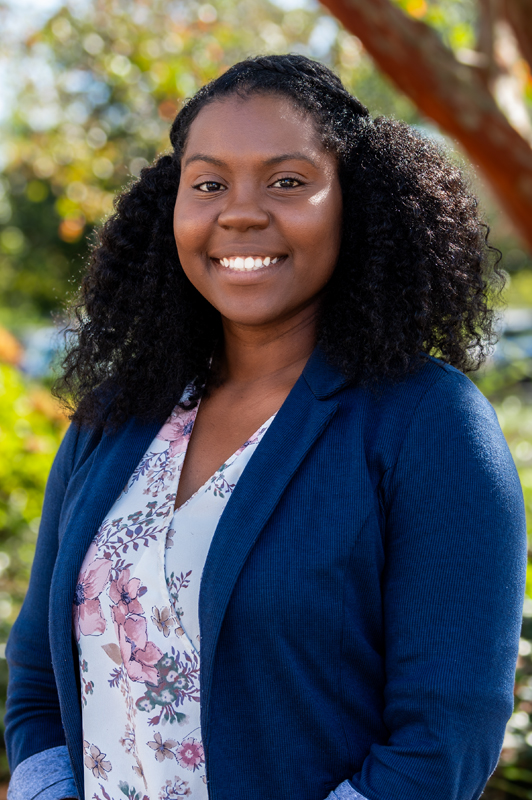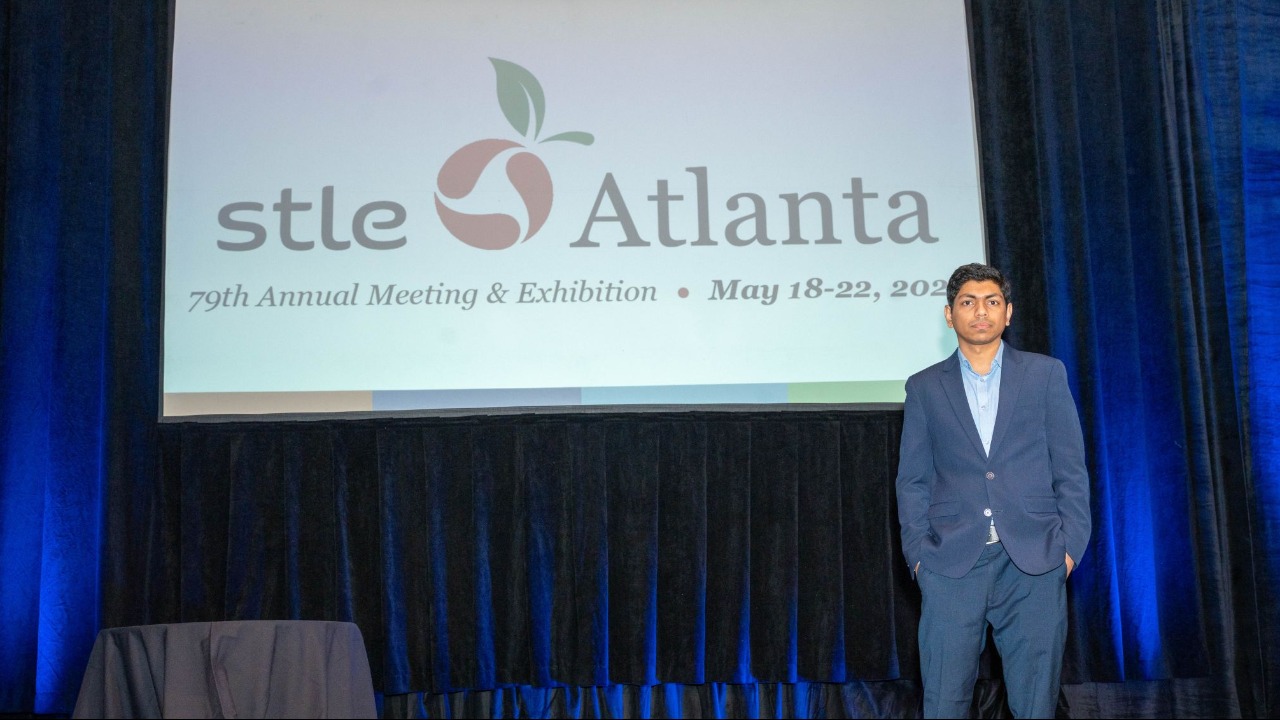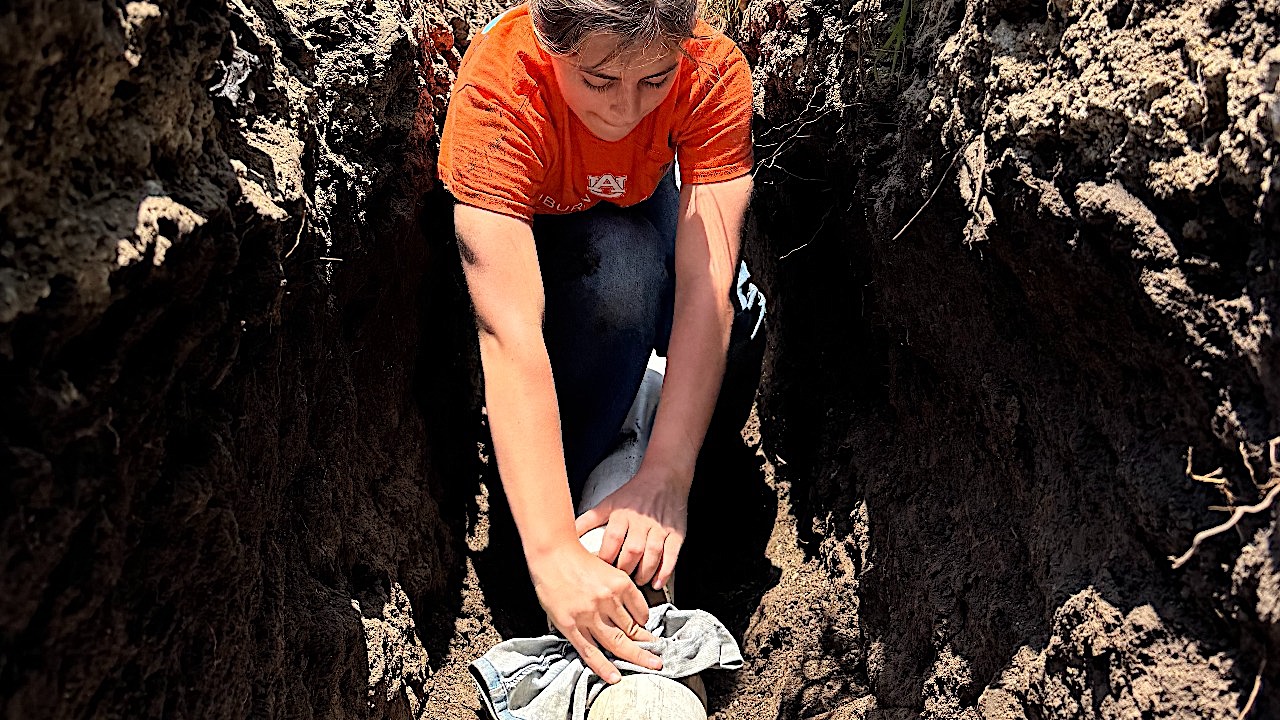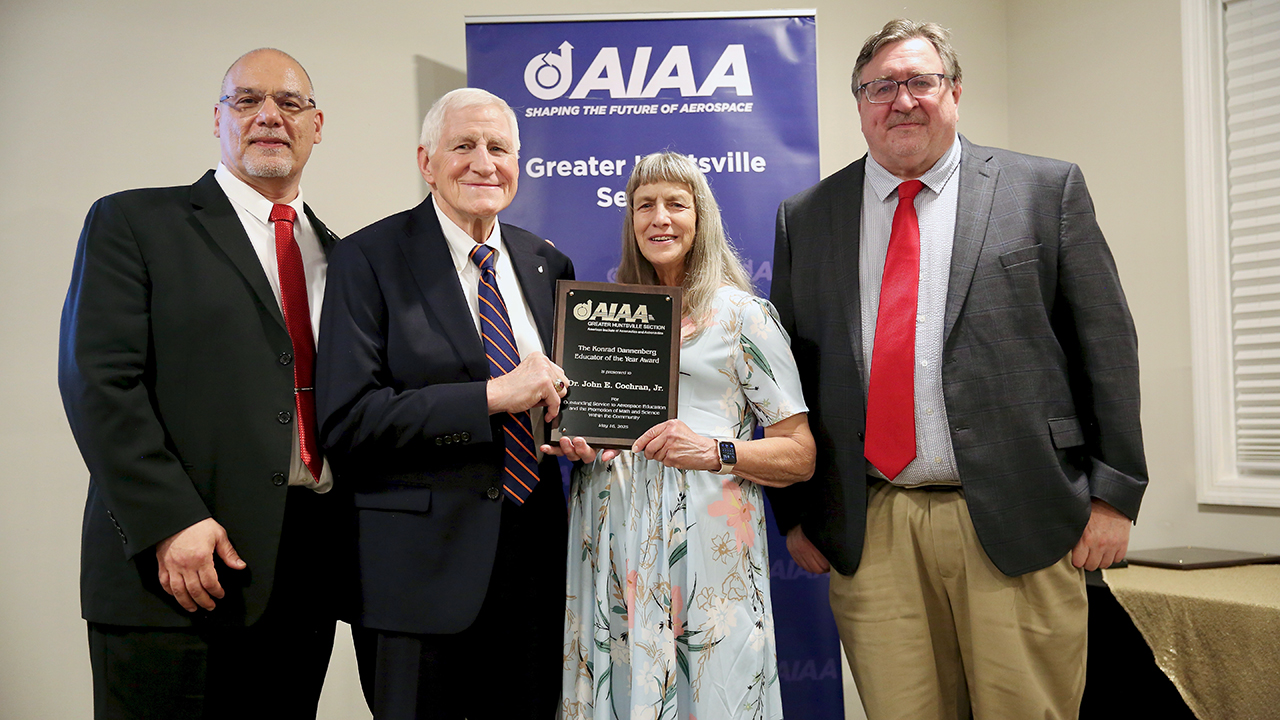Assistant professor in chemical engineering part of first Alabama Biomanufacturing Program cohort
Published: Jun 3, 2025 7:55 AM
By Joe McAdory
Synthetic nanofibers are part of our daily lives. The clothes we wear, towels we use, plastic containers we drink from, carpet we tread upon and cosmetics we apply.
There’s a problem, however. These nanofibers are not biodegradable and often end up in the air and water we ingest. The potential results: respiratory issues, dermatitis, endocrine disruptions and more.
Symone Alexander, assistant professor in the Department of Chemical Engineering, offers a safer alternative by extracting cellulose nanofibers from an unlikely source — pecan shells. Typically discarded or used for mulch, pecan shells are rich in cellulose and ideal for converting into nanofibers.
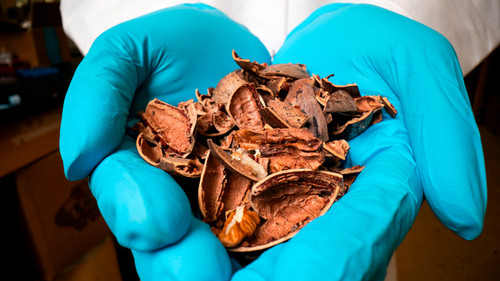
“My process is not only low-cost but also satisfies consumer demands, provides significant environmental benefits and meets regulatory goals and requirements,” she said. “This approach leverages the unique potential of pecan shells, which has not been explored in current literature or intellectual property. We’re turning agricultural waste — pecan shells — into high-performance materials. What used to be discarded is now the foundation for clean, green innovation. That’s the future of bio-based manufacturing. It’s sustainability and circular economy in action.”
The Alabama Biomanufacturing Program (ABP) — an initiative designed to identify existing or prospective innovative companies that will enable commercial growth, technological advancement and creation of infrastructure to support biomanufacturing in the state — thinks so, too.
Alexander’s project, “Shellulose,” was one of nine startups selected to participate in ABP’s first cohort, where she will receive sponsored research and entrepreneurial assistance, legal and regulatory guidance and physical infrastructure support to establish a cellulose nanofiber biomanufacturing facility.
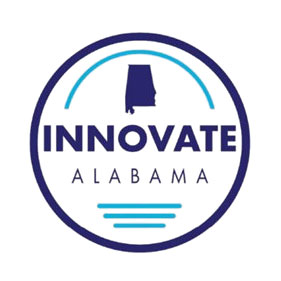
Initiated through a partnership between Opportunity Alabama, Measured Capital and Arrowpoint Labs in Birmingham, and backed by Innovate Alabama — a state public-private partnership focused on entrepreneurship, technology and innovation — the ABP promotes collaboration between universities, research institutions, and industry partners to drive economic growth and support biomanufacturing startups in the state’s rural areas.
“This program allows us to alleviate many of the barriers that scientists and aspiring entrepreneurs face when launching a company,” said Arrowpoint Labs Associate Director Luke Brazinski. “By covering legal costs and providing strategy support, we hope to take participating companies to their next inflection point where they can raise the capital needed to commercialize.”
Alexander’s proposal springboards off a 2023 National Science Foundation-awarded project, “Advancing Social and Environmental Equity through Plastics Research: Education, Innovation and Inclusion (ASPIRE),” where lignin was extracted from pecan shells.
With support from the ABP, her lab will transition to pilot-scale operations capable of producing between one to three kilograms of nanofibers daily. This scale-up phase will involve optimizing the extraction and collection processes, improving fiber consistency and performance and preparing for commercial applications. The combination of local biomass sourcing, robust institutional backing and technical innovation allows Alexander to advance her research efficiently while positioning the product for real-world impact.
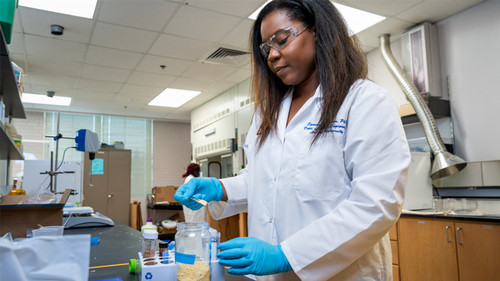
“My goal is to bridge the gap between performance and sustainability,” Alexander explained. “We shouldn’t have to choose between a product that works well and one that’s good for the planet.”
Alexander didn’t have to look far to find pecan shells. Pecanderosa Orchard, a family-owned farm in nearby Notasulga, Alabama, is providing raw materials.
“Look around the rural Alabama countryside, and pecans are everywhere,” she said. “The U.S. is currently the world’s largest producer of pecans. It’s a major agricultural crop, both domestically and for export, and about 60 percent of the waste from harvest is lignocellulosic waste. That means there’s a significant amount of available feedstock to work with.
“Working with local farmers has been one of the most rewarding parts of this project. “They’re incredibly supportive and excited to see agricultural waste turned into something with real value.”
Alexander believes the initiative will create a new sense of energy about biomanufacturing in the state.
“I’m looking forward to connecting with the other startups and building a strong network,” she said. “What the Alabama Biomanufacturing Labs Program is doing is especially important. They’re not only connecting us as a cohort but also acting as matchmakers for funding, professional development, and collaboration.
“There is an urgent need to rethink the materials we use and how they're made. If we can develop high-performance cellulose fiber that naturally decomposes without polluting our water, we can create real change, both for the planet and future generations.”
Media Contact: , jem0040@auburn.edu, 334.844.3447
Symone Alexander is turning discarded pecan shells into a foundation for clean, green innovation.


